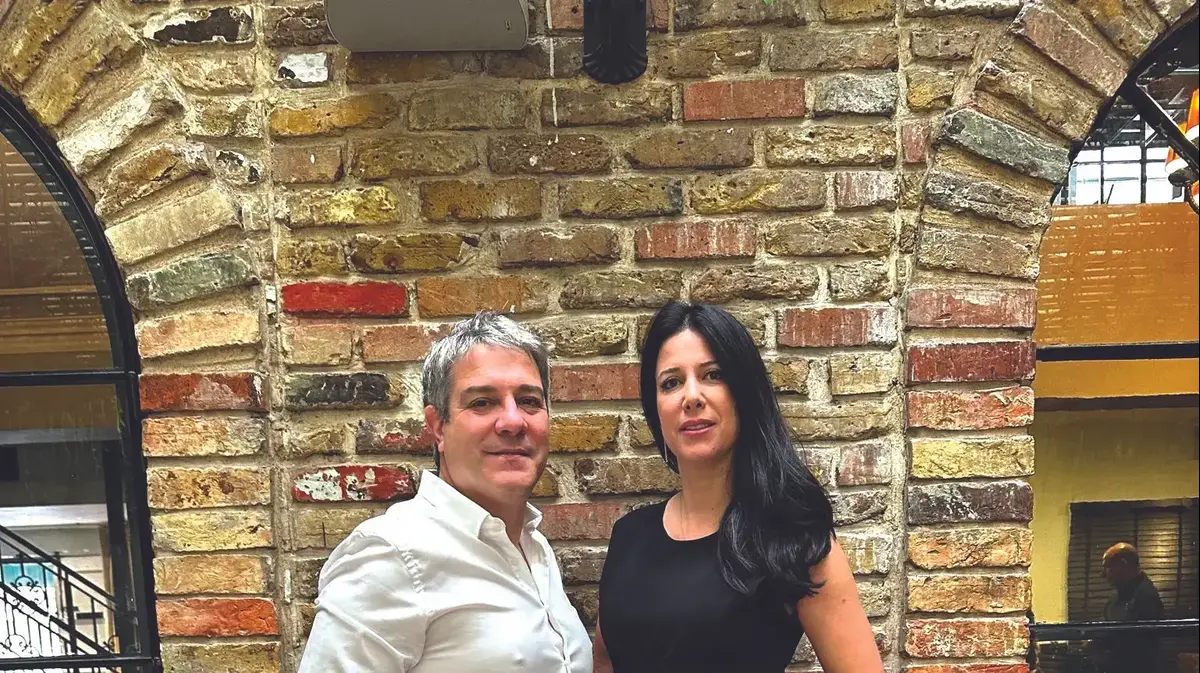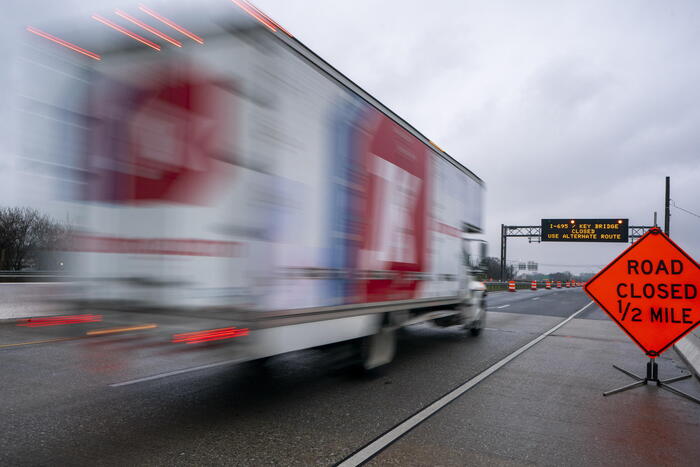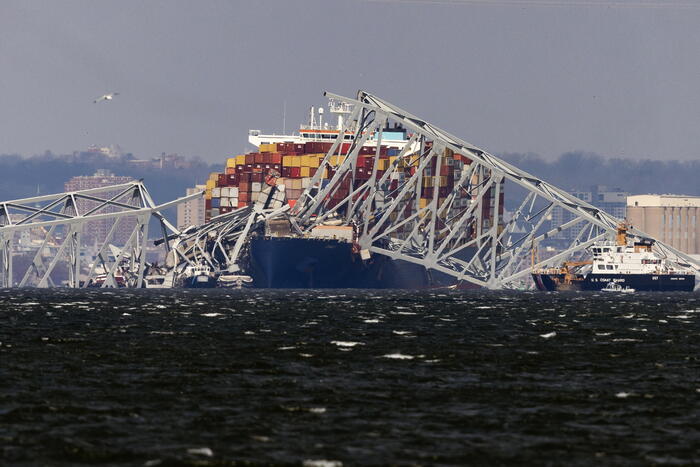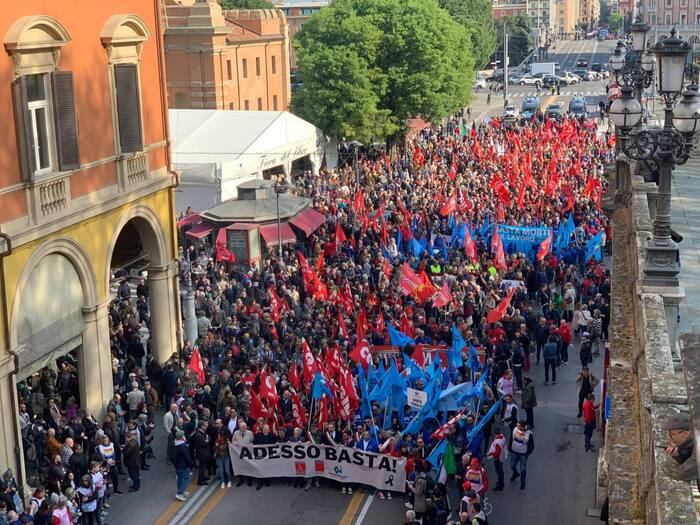- Click to share on Facebook (Opens in a new window)
- Click to share on Twitter (Opens in a new window)
- Click to share on LinkedIn (Opens in a new window)
- Click to email a friend (Opens in a new window)
Editor's Note: Alice Driver is a freelance journalist whose work focuses on migration, human rights, and gender equality. Lives in Mexico City. Driver is the author of "More or Less Dead: Femicide, Persecution and Ethics of Representation in Mexico". The opinions expressed in this comment are specific to the author. More opinion pieces at CNNe.com/opinion
(CNN Spanish) - Many of the workers across the country work side by side, six days a week, eight hours a day. For them, social distancing in the workplace is nothing more than a dream.
I have spent the past few months interviewing essential workers in the southern United States, primarily Arkansas, where they are essential to this country's food chain. They come from Mexico, El Salvador, Myanmar, the Marshall Islands and beyond. The workers I spoke with, many undocumented, told me that they fled the ravages of climate change, genocide, and the war to come to the United States, where they pick tomatoes, onions, lettuce, and kill the pigs and chickens that later They will adorn the tables of the Americans. They spend their days cleaning the rows of rice fields from weeds, lining up frozen chicken breasts so that a machine can cut them into chicken nuggets, and washing the blood from the legs of recently killed chickens.
In a decree signed in April, President Donald Trump considered that the workers, mostly immigrants and many undocumented people, who supplied our food, were essential, but left the application of security measures against covid-19, in the hands of the companies, some of which have resisted being transparent and reporting on issues as basic as how many workers have been infected with the virus in the workplace. Rather than relying on companies to voluntarily receive guidance from the Occupational Safety and Health Administration (OSHA), Trump should require companies to comply with specific safety measures against covid-19, which the Department of Labor is empowered to implement in an emergency. As we have seen, when safety standards are not met, essential workers die.
The workers I interviewed were proud to have been able to support their families by working on farms and meatpacking plants, but reported that many of their employers did not follow the guidelines of the US Centers for Disease Control and Prevention (CDC). USA to prevent the spread of the new coronavirus. Although Trump and other politicians have repeatedly told us that essential workers are heroes and warriors, the workers I spoke with feel they are expendable. For essential workers, all praise is hollow if measures that help preserve their lives are not applied.
- LOOK: Dies in the US another meat processing plant inspector by covid-19
Companies insist that they are taking the appropriate measures to protect their workers. For example, David Jackson, chief operating officer of Simmons Foods, an Arkansas-based producer of poultry and wet pet food, said in a statement emailed through the director of communications that the company had expanded the areas Common and installed protective barriers between workstations and was notifying any worker who had been in close contact with a positive colleague for covid-19 (although it did not directly address how the company had determined which employees to contact). Jackson further said that Simmons Foods was "working diligently every day to evaluate ongoing efforts, make improvements following the guidance of CDC and OSHA, and ensure that our facilities have adequate PPE, hand sanitizer solution and other necessary supplies" .
But workers at meat-processing plants, including Simmons, described having little or no social distancing at work, simply because meeting the social distancing would require slowing down production. And if production slows down, companies will see a decline in profits and consumers will have to pay more for meat.
These workers feel that their lives are more important than profits and cheap meat, and we must listen to them.
As ProPublica reported, meat and poultry processing workers are rarely paid when they are sick and many companies have a disciplinary point system where workers are punished for calling sick. Even before the coronavirus, there was a shortage of workers in the meat-processing industry, which is understandable given that the work is hard and poorly paid and frequently performed by refugees, whose entry into the US It has been limited by the Trump administration.
In the absence of adequate leadership from politicians and businesses to protect their safety, essential workers have begun to organize to demand sick leave and essential benefits. However, as they try to change companies' security policies, they continue to work in conditions that they fear will lead to death. An undocumented worker I spoke to in Ft. Smith, Arkansas, who has been processing chicken at Simmons Food for a decade, said, "I pray God I won't catch the virus." However, she plans to continue working to support her five children because “necessity forces us to do so. I am old and do not speak English. I do not know how to drive. I have nothing to do but work. ”
These essential workers have common complaints about working conditions. However, many workers are undocumented and fear being deported if they tell the truth. Farmworkers, of whom 26% are undocumented according to the Pew Institute, informed me that their hours were reduced or irregular, putting them in a position where they could not afford to buy enough food for their families. Even those with documents told me that several family members worked at the same company and were afraid of being fired if they spoke to the media about working conditions. In one case, I interviewed a couple who worked at a poultry processing plant, and were concerned about who would care for their four children if they both contracted coronavirus.
- MORE: More than 370 workers at a pork plant in Missouri tested positive for coronavirus. They were all asymptomatic.
Essential workers complained that employers had not provided protective equipment such as masks, or that they rationed such equipment. If Trump can issue a decree to keep meat-processing plants running, he must also ensure that the country is producing enough face masks to protect such workers. Workers told me stories of how employers failed to inform them of colleagues who tested positive for covid-19, how they had washed soap to save money, how they pressured workers who called in sick to continue working, and how said that if they spoke to the media they would be fired.
The men and women I spoke to told me that they believe companies valued profits above their lives: Along with prisons, meat-processing plants are the places where the spread of covid-19 has spread most rapidly in United States. Annie Grant, a meat processing worker in Georgia, who had a fever for two days and was told by management to return to work, died of coronavirus in a hospital. A spokesman for Grant's employer, Tyson Foods, told "The New York Times" that the company was taking worker temperatures before joining and was implementing social distancing measures.
Grant's story illustrates the pressures workers face and how the company's actions often contribute to the spread of the coronavirus and the death of workers. If President Trump truly believes that essential workers are heroes, he must act to ensure that such workers do not die unnecessarily.
coronavirus








